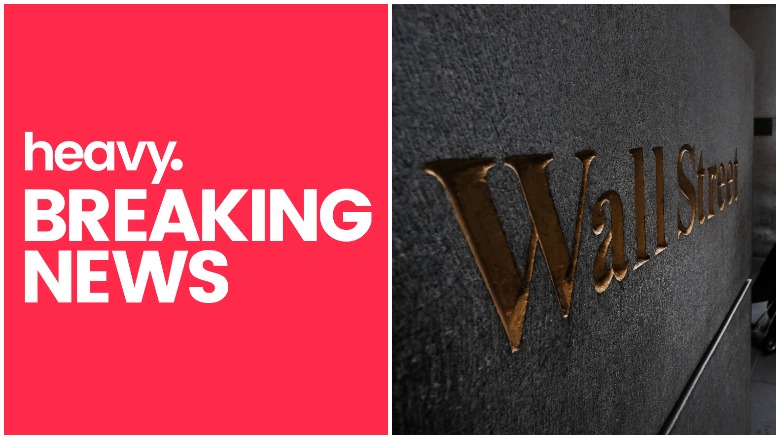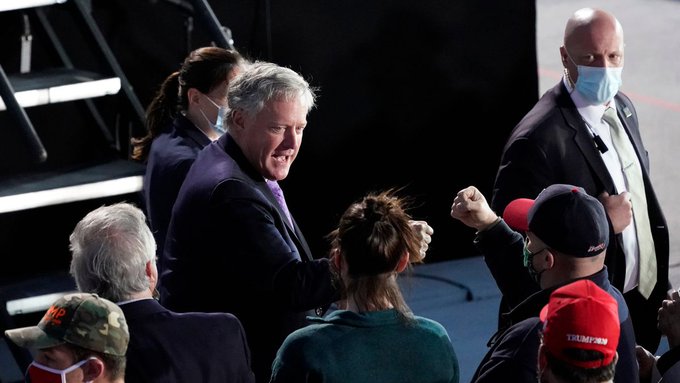
The stock market fell by hundreds of points Monday, October 26, as Congressional Democrats and Republicans failed to reach a deal on coronavirus relief aid. Analysts told The Washington Post that the reaction is likely in anticipation of what rising coronavirus cases could mean for the economy as well as the lack of a stimulus deal and an uncertain election.
It’s not the first time the stock market has reacted dramatically and precipitously to news that a deal would not be forthcoming.
Earlier in October, President Trump’s unexpected Twitter announcement that he was halting all stimulus package negotiations sent the .stock market into chaos, with all three major U.S. indicators falling by several hundred points.
Investors Are Being Cautious, The Post Reports
The Dow Jones Industrial Average closed 2.3%, or 650 points lower than it opened, Barron’s reported. The S&P 500 fell 1.9% and the Nasdaq Composite fell by 1.6%. The Washington Post reported that the losses, “erased all of the blue-chip index’s gains for October.”
The decrease was caused by investors exercising caution for a number of reasons, according to The Post. The largest two were concerns about increasing coronavirus cases as well as the failure of Congress to reach a deal on coronavirus relief which could financially reinvigorate struggling businesses and Americans.
Ryan Detrick, a chief market strategist with LPL Financial, told The Post, “The double whammy of a stalled stimulus bill and new highs in cases is a harsh reminder of the many worries that are still out there. Most of the recent economic data has been strong, but when you see parts of Europe going back to rolling shutdowns, it reminds us this fight is still far from over.”
Michael Wilson, an equity strategist at Morgan Stanley agreed. “With just one week to go until the U.S. elections, the outcome remains uncertain. It’s also holding up the next round of fiscal stimulus, he told Barron’s. This political uncertainty along with the arrival of the second wave of Covid-19 has pushed equity volatility higher and the S&P 500 hasn’t been able to make a new closing high in eight weeks, the longest period since the new bull market began in March.”
The losses were worse than what occurred earlier this month, following Trump’s tweet announcing that there would be no more negotiations over a package. The Hill reported how shortly after Trump made his announcement, the Dow Jones closed at a loss of 1.3%, while the S&P 500 lost 1.4% and Nasdaq fell by 1.6%.
Trump had quickly reversed course, tweeting, “If I am sent a Stand Alone Bill for Stimulus Checks ($1,200), they will go out to our great people IMMEDIATELY. I am ready to sign right now. Are you listening Nancy? @MarkMeadows @senatemajldr @kevinomccarthy @SpeakerPelosi @SenSchumer.”
Pelosi & Trump Have Said Stimulus Checks Will Be Part of Any New Relief Bill
Principal stimulus package negotiators House Speaker Nancy Pelosi and Treasury Secretary Steven Mnuchin have expressed optimism and suggested that they are close to a deal, despite a five-month impasse.
Democrats passed the $3.4 trillion HEROES Act in May, and Republicans passed the $1.3 trillion HEALS Act later in the same month. Since then, Republicans moved their estimate up by $600 billion to a $1.6 trillion offer proposed by Republicans, while Pelosi and the Democrats recently passed an updated $2.2 trillion version of the HEROES Act.
The Democrat-controlled House has repeatedly refused to vote in support of the Republicans’ $500 billion-$1.2 trillion piece-meal approaches to coronavirus relief while the Republican-controlled Senate has refused to pass the Democrats’ more expensive coronavirus-relief-related legislative acts for months. A recent $1.8 trillion proposal from the White House was attacked by Republicans who thought the bill was too expensive and Democrats who thought the bill didn’t cover enough.
Pelosi has been firm in saying that the new package would likely include stimulus checks, according to Newsweek. “We’ve come, I think, to terms on the direct payments,” Pelosi said. Despite reluctance from many Republicans, whose aides told The Washington Post that Congressional Republicans were irritated with the number of Mnuchin’s concessions, Trump has pushed Republicans to accept a larger deal.
READ NEXT: Stimulus Checks 2: Would You Get $500 or $1,000 for Dependents?
